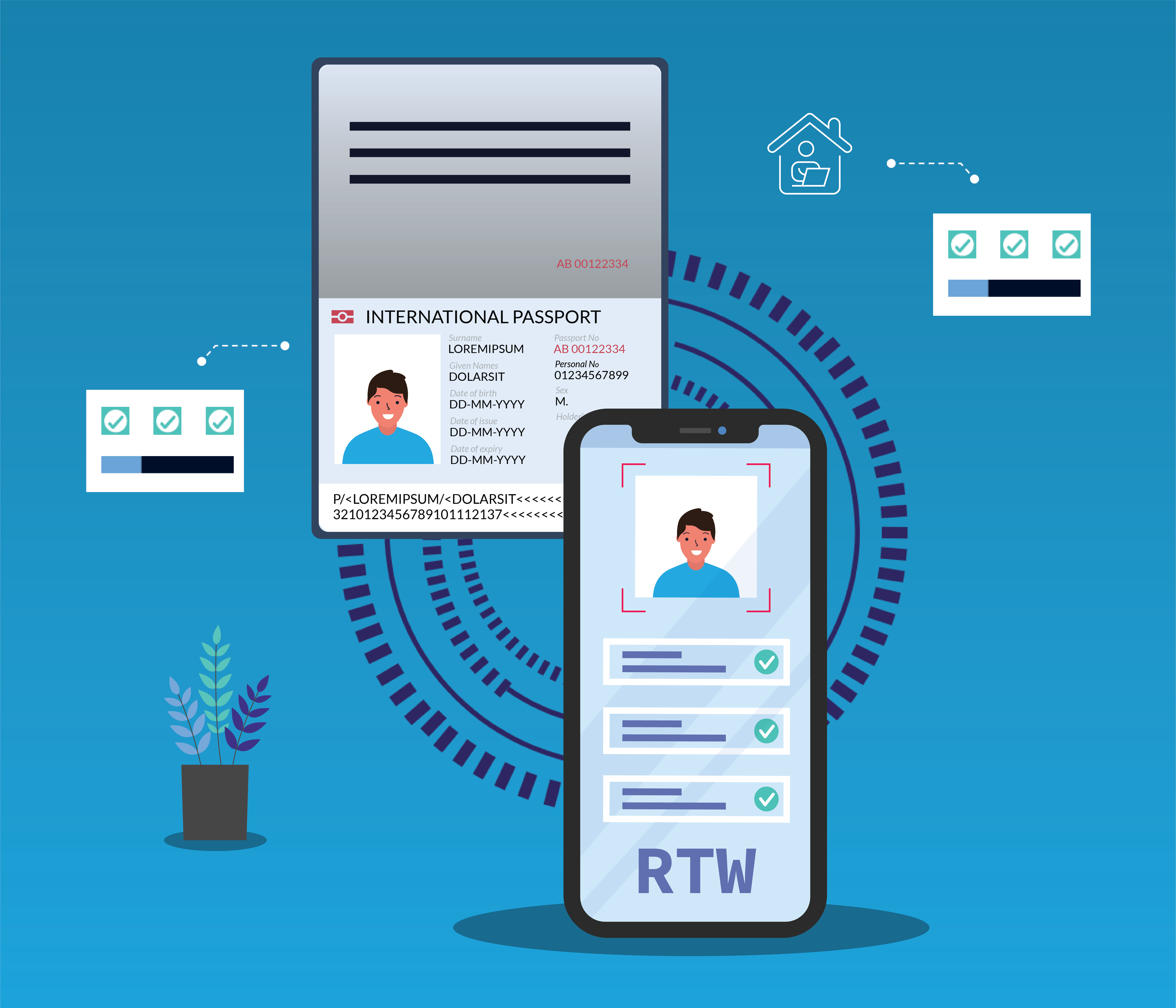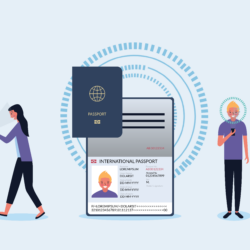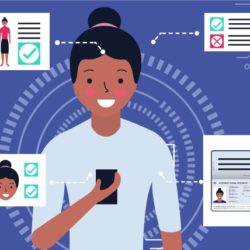Digital identity: a toolkit for onboarding teams. (Part I – A question of identity)

In this 4-part series, we share how we’re supporting businesses to help make onboarding and recruitment easier, faster and more secure.
Part 1: A question of identity
A quick 101 on digital identity verification including what it is, why it is important, and how it can make life a whole lot easier for HR professionals.
What is a digital Right to Work check?
A digital Right to Work (RtW) check allows applicants with valid and eligible proof of identity to verify they are who they say they are and prove their RtW remotely, rather than handing over physical identity documents for checking.
Before Covid adjustments, employers had to see an applicant’s original, physical documents to prove their identity. Lockdown changed all that, bringing in an option for Right to Work checks which proved efficient and popular. The digital Right to Work Scheme offers an alternative way to be checked remotely once Covid-adjusted checks come to an end.
When do we need to update our Right to Work processes?
In April, the government updated its Right to Work (RtW) guidance and launched a new digital RtW Scheme to continue online identity checks, taking the opportunity to tighten up the rules on remote recruitment.
The option for Covid-adjusted checks will remain until 30th September 2022. Between now and that date, employers need to decide whether to:
- introduce digital checks for eligible applicants (the digital RtW Scheme is optional for UK/Irish in-date passport holders)
- return to physically checking documents
- combine the two methods.
Of course, your choice will depend on the demographic of your applicants and your internal recruitment processes. (Read our blog to discover 4 questions to help you decide)
Why is it important to carry out identity checks?
All employers in the UK, whatever the size of business or sector they operate in, must ensure that every employee goes through a check to confirm that they can work in the UK.
There are tough penalties for employing someone who doesn’t have permission to work in the UK if you didn’t carry out thorough checks.
You can carry out a Right to Work (RtW) check either by:
- seeing and checking relevant identity documents
- or carrying out a digital RtW check for those people who are eligible.
Without RtW checks you run the risk of hiring someone who is not who they say they are – and they may well have a strong reason for hiding their true identity. It could be that they aren’t eligible to work in the UK, or they have something in their background that they don’t want known.
When you hire someone, you’re potentially opening your organisation’s doors to that person for several years. If their ID doesn’t check out, at this stage it’s too late. Once they are through the door, it can harm your finances, security or even other staff from day one. If you uncover a fraudulent staff member, you’ve already spent time and money employing and training them … and you’ll have to do it all again with their replacement.
What are the top six benefits of digital identity checks?
- Digital checks have a distinct edge when it comes to accuracy, speed and scale.
- Manually processing Right to Work (RtW) checks can suck up resources, whether you’re recruiting small or large numbers of people. Digital checks take that pressure away.
- It’s not always clear what to look for in every document. Digital checks – especially if they are backed up by human experts checking any anomalies – give confidence that the latest guidance is being followed, and that the right things are being looked for.
- Digital ID checks can highlight issues that the human eye could miss. They also prevent unconscious bias sneaking into the hiring process.
- Sometimes it’s a question of speed. In highly competitive employment markets, completing the necessary checks as quickly as possible prior to making a job offer is more likely to get you to ‘yes’ and secure the candidate than taking days over the process.
- Digital ID checks give your organisation’s legal team and CEO peace of mind, knowing that the business isn’t exposed to risk from non-compliance to hiring laws.
How do I find out more?
The world of digital identity can be complicated to navigate. The experts at TrustID have streamlined the process to make life easier for HR professionals and everyone involved in recruitment or running Right to Work (RTW) checks.
Our Right to Work service offers a unique combination of technology and human support, and our industry-leading document analyst team are on hand seven days a week to offer support and ensure that you’re up to date, even if Home Office RtW guidance changes.
To improve onboarding, protect your business and make life easier, check out TrustID’s industry-leading approach to digital Right to Work checks.
What’s next?
In part 2 of the future of working series we take a deeper dive into the differences that digital identity checks have made for some of our customers.
Want to find out more?
If you’d like to find out more, why not download our FAQ document below, visit our Right to Work service page or contact us here.
or
Sign up to receive updates
Receive notifications from TrustID direct to your inbox. Simply fill out your email address in the form below.
Want to find out more?
We’d be really happy to chat through your requirements and offer advice on the best service for your business.
Tel: 0118 466 0822 or email us.
Request a callback


